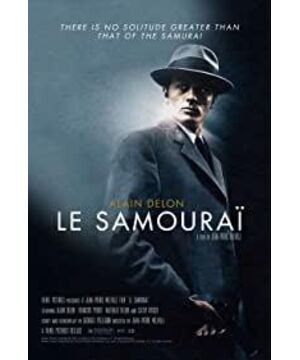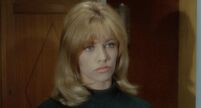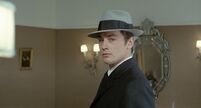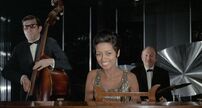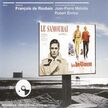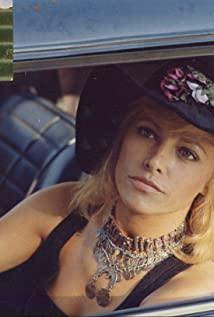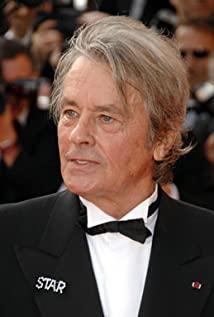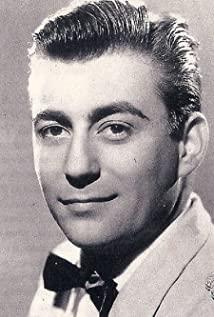"Lone Killer" can be said to be my first impression of French art film. I recorded this movie from the TV station with a VCR and watched it many times.
For a while I thought of it as an Alain Delon movie. When an actor is too charismatic, it's hard for you to think about what his (himself) character is like, and the fantasy given to you by the role is somewhat similar to the effect of love on people. But like a moderate narcissism, this fantasy is good for art,
At the same time, slowly, I realized that the soul of this movie is not Alain Delon's, its soul belongs to director Melville. That bald Melville with nasty eye bags, cynical-looking and even slick-looking.
This brings me to the creation of novels. An eternal movie role, no matter how much charm an actor endows him (her), but an actor is a prop of the movie, the material of the movie, or a part of the language of the movie. A movie narrates its own character through the actors. In novels, there should also be an "actor" like yourself. This actor is not a character in the novel, but your language and your narrative.
In addition to the actors, you can also see a director's control over the film from the soundtrack. The score for the film by composer François de Roubaix, who died young, is an equally memorable part of the film.
So, in "Lone Killer", whether Alain Delon deliberately acted cool under the director's instruction (of course), and whether it magnified his most beautiful side (of course), I don't really care, what I care about is the director (the creator) ), actors (creative materials) and films (works).
Continuing the above topic, I want to talk about the performance characteristics of this film. At the director's request, the actors' performances in this film have a flat tone and lack of expressions, resulting in the film not having the reality of life, but also lacking the usual tension of a stage play. But after all, it doesn't matter whether people have expressions or not in their hearts. Most of them are expressionless when they are alone. Only when they are in contact with people will they have expressions. Expressions are social. The deliberate lack of expression makes the viewer reflect his own heart. Consistent with the tone and expression, the actor's actions in the movie are also very contrived. For example, after stealing the car, he went to the black shop of the modified car to change the license plate, and then took out a stack of money and gave it to the modified shop owner in exchange for a pistol. , I can't help comparing it to the opening scene of Schindler's List where the hero pulls money out of a drawer, and the two are so different. But I prefer to regard the performance of "The Lone Killer" as a sense of ritual brought about by a highly formalized Peking Opera, as well as the impact of the sense of ritual. There are a lot of character movements and facial close-ups in the film that are close to a standstill, which also had a very important influence on my later writing. For example, after the actor steals the car, he drives to a traffic light intersection and has to stop the car. Through the rain-drenched car window, he and the young girl in the other car next to him looked at each other for two seconds. Melville even gave the girl a close-up of her mouth. Art is a ritual related to form, and details are extremely important to the sense of form.
In the same way, the plot of this movie is not without loopholes. It is not so much a gangster movie that it is a knight movie imagined by the director. But because of the points I mentioned above, I still really like it. As a movie from the 1960s, it seems to have something that is not outdated today, which is the so-called "legend" of the movie.
View more about Le Samouraï reviews


